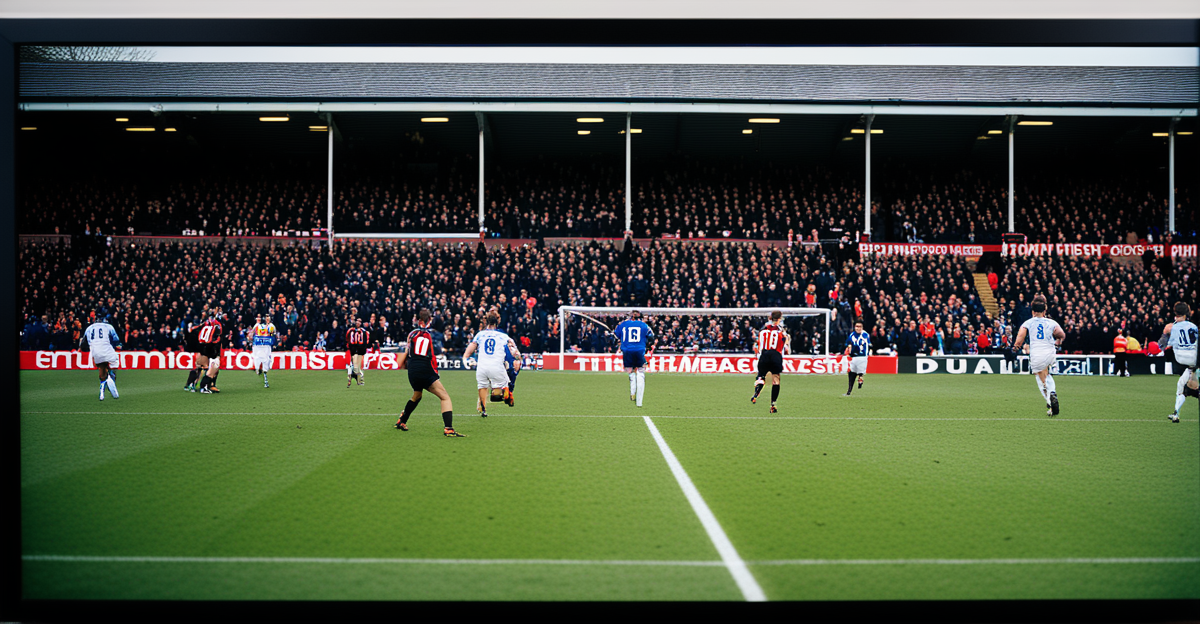Economic Impact of UK Sports Events on Local Businesses
UK sports events generate significant economic impact, driving notable increases in local business revenue. During major fixtures, hospitality venues—from pubs to restaurants—experience a surge in patronage. Retail outlets also benefit as visitors purchase memorabilia, clothing, and other items related to the event. Services such as transportation and accommodation see equally positive spikes in demand.
Attracting outside visitors is a core factor behind this boom. These guests contribute to the spillover effect by spending beyond the immediate event venues, spreading revenue across various sectors. This influx often creates opportunities for small and medium enterprises to flourish temporarily, boosting the local economy.
Topic to read : How Has the UK Impacted Global Sports Trends?
The economic impact varies depending on the scale of the event. Major fixtures like the UEFA finals or Commonwealth Games enable broader financial benefits compared to smaller tournaments, which may only moderately enhance local business revenue. Understanding these differences helps local stakeholders better prepare and capitalize on opportunities presented by various UK sports events.
Economic Impact of UK Sports Events on Local Businesses
Significant economic impact from UK sports events stems from direct revenue growth across hospitality, retail, and service sectors. Hospitality sees increased demand as locals and visitors dine and socialize before and after matches. Retail stores capitalize on elevated foot traffic, selling event-related merchandise and everyday items. Transportation and accommodation services enjoy spikes from increased travel needs.
Additional reading : How do UK sports promote inclusivity and diversity?
The attraction of outside visitors plays a vital role in boosting local business revenue. These visitors contribute to a spillover effect, spending on diverse businesses beyond event venues. This dynamic broadens financial benefits, supporting industries that might otherwise see little change during event periods.
Not all events yield the same economic outcomes. Major tournaments like the Commonwealth Games generate broader and more sustained economic impact, benefiting a wide range of businesses. Conversely, smaller and local fixtures produce more modest yet still valuable revenue boosts. Recognizing these differences helps cities optimize infrastructure and marketing strategies to maximize returns from future UK sports events.
Economic Impact of UK Sports Events on Local Businesses
The economic impact of UK sports events on local business revenue is most pronounced through direct spending in hospitality, retail, and service sectors. During these events, restaurants, bars, and cafes witness spikes in patronage, while retail shops sell increased volumes of merchandise and everyday goods. Transportation services and accommodation providers also benefit from greater demand, boosting their income streams.
A critical driver of this surge is the attraction of outside visitors. These guests spend beyond the event venues, creating a valuable spillover effect that extends the economic impact across multiple local industries. This dynamic enables a wider distribution of economic benefits, supporting businesses that might not directly relate to the sports activities but still see increased sales.
Importantly, the level of economic impact varies with the event size. Major UK sports events, such as international tournaments, generate more substantial and longer-lasting revenue increases compared to smaller local fixtures, which yield shorter, more modest boosts. Recognizing these distinctions aids stakeholders in adjusting their strategies to maximize local business revenue during diverse types of UK sports events.
Economic Impact of UK Sports Events on Local Businesses
The economic impact of UK sports events on local business revenue largely stems from direct spending in hospitality, retail, and service sectors during event periods. Hospitality venues report elevated sales as fans and visitors dine before and after matches. Retailers benefit from increased foot traffic, with purchases including event merchandise and everyday items. Meanwhile, transportation services and accommodation providers experience heightened demand, directly boosting revenues.
A key driver is the influx of outside visitors, who significantly contribute to the spillover effect by extending their spending beyond event venues. This broader dispersal of economic benefits supports a diverse range of local businesses, even those not directly linked to the sports event. For example, taxi services, convenience stores, and leisure facilities all see gains during peak event times.
The scale of the event strongly influences its economic impact. Major UK sports events produce greater and more sustained revenue increases, often accompanied by substantial media exposure and infrastructure investment. Conversely, smaller tournaments generate more limited but still meaningful local business boosts. Recognizing these variations helps stakeholders tailor their approaches to maximize local business revenue effectively.
Economic Impact of UK Sports Events on Local Businesses
Direct revenue increases form the core of the economic impact on local business revenue during UK sports events. Hospitality sectors often see surges in sales as fans and visitors flock to bars, restaurants, and cafes. Retailers benefit too, with spikes in sales of merchandise and everyday goods. Meanwhile, transport and accommodation providers experience heightened demand, leading to noticeable income boosts.
The attraction of outside visitors significantly amplifies this impact through a spillover effect. These visitors spend not only at event venues but also in nearby shops, leisure activities, and services, broadening the financial benefits to a wider array of businesses. This diffusion of spending helps stabilize revenue increases beyond the immediate event duration.
It is important to note the differences in scale between major and minor events. Large events like international tournaments produce more substantial and longer-lasting effects on local business revenue, often revitalizing entire sectors. On the other hand, smaller fixtures offer shorter, more localized financial uplifts, valuable yet limited compared to major events. Appreciating these distinctions informs better planning and resource allocation for maximizing economic returns during UK sports events.
Economic Impact of UK Sports Events on Local Businesses
The economic impact of UK sports events is closely tied to direct increases in local business revenue, particularly within hospitality, retail, and service sectors. Hospitality venues such as pubs and restaurants often report sharp rises in sales due to greater patronage from both locals and visitors. Retailers similarly benefit from event-related merchandise demand, alongside everyday purchases spurred by increased footfall.
A pivotal element driving this economic impact is the influx of outside visitors, which amplifies the spillover effect on business sales. Visitors extend their spending beyond sports venues to local shops, transport, and leisure services, broadening the financial benefits across the community. This spillover sustains elevated revenues for various businesses during and around event dates.
The magnitude of local business revenue gains varies considerably between major and minor UK sports events. Large-scale tournaments generate substantial and sometimes lasting boosts, often accompanied by infrastructure improvements and increased media attention. In contrast, smaller events yield briefer and more localized revenue increases, though still vital for supporting community businesses. Understanding this spectrum helps stakeholders optimize strategies to capture the full potential of UK sports event-driven economic activity.











